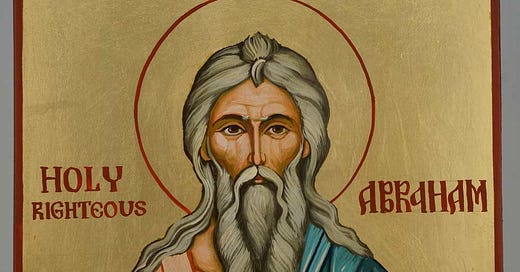Being Reckoned as Righteous
The Second Sunday after Pentecost (Year A)
Scripture (semicontinuous)
Old Testament: Genesis 12:1-9
Psalter: Psalm 33:1-12
Epistle: Romans 4:13-25
Gospel: Matthew 9:9-13, 18-26
Scripture (complementary)
Old Testament: Hosea 5:15—6:6
Psalter: Psalm 50:7-15
Epistle: Romans 4:13-25
Gospel: Matthew 9:9-13, 18-26
___
Prayer
Beckoning God, you promise long journeys and new names. Call us out to risk holy advent…
Keep reading with a 7-day free trial
Subscribe to Faith Seeking Understanding to keep reading this post and get 7 days of free access to the full post archives.




